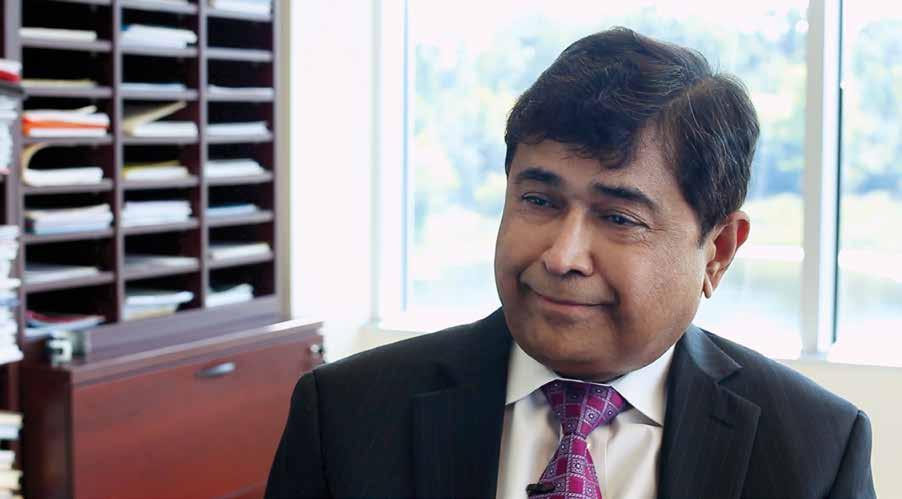
4 minute read
MCW’s Syed Ahmed Partners with the Community to Address More than
DR. SYED AHMED
MCW’S SYED AHMED PARTNERS WITH THE COMMUNITY TO ADDRESS MORE THAN SYMPTOMS
Advertisement

BY ERIN BLOODGOOD
Dr. Syed Ahmed is a long-time physician and academic who has dedicated his career to treating patients through community engagement. He takes time to get to know his patients and determines his diagnosis once he understands their daily concerns as well as their symptoms. Based on years of research at the Medical College of Wisconsin (MCW), he finds it is crucial to learn about his patients’ background and life situation in order to effectively improve their health.
Community engagement is a concept that is becoming more widely used in medical institutions around the country. The idea is that institutions can better improve the health outcomes of people by actively partnering with the communities they are working with. Academics and doctors tend to be removed from the populations they are treating. “What we do in the hospital system is very important and valuable, but it impacts only 20% of the outcome. Eighty percent of the outcome is connected to where the people are coming from,” says Dr. Ahmed. So, by listening to leaders and organizations in those communities, they can better understand the situations that cause health problems. Rather than treating the symptom, Ahmed and other physicians at MCW are trying to address the underlying problem.
Trained in the traditional ways of medical practice, Ahmed was not always attuned to this way of thinking. He had his first eye-opening experience when he moved to a small town in Ohio after finishing his residency. He realized that cardiovascular disease was very common in this town, so he began his own program to try to help
the local residents. When bringing up his ideas at a town hall, the only response he received was a question from a woman asking about where to find cheap diapers. It was then that he realized he knew nothing about the people he wanted to help, nor did he talk to any community leaders about the problem. He later found out that the county produced tobacco, which directly related to the cardiovascular problem. “You can’t do a program by yourself,” says Ahmed. “You have to get involved in the communities you are trying to serve.” That lesson led him to develop and eventually lead community engagement programs at medical institutions. He has now been at MCW for about 20 years and is the Senior Associate Dean for the Community Engagement mission.
HELPING VETERANS BEAT ADDICTION
One of the ongoing community engagement projects he has helped build at MCW is a result of partnering with Dry Hootch, an organization serving multiple needs of veterans. This program, called PROMPT (Prevention of Opioid Misuse Through Peer Training), funded through a grant from the Robert Wood Johnson Foundation, was created to help veterans combat the opioid crisis that is common in their communities.


From the beginning, community members were involved and giving input to MCW staff so they could better understand the opioid challenges veterans face. Through the collaboration, MCW, Dry Hootch and a third partner, Mental Health America, created a peer-to-peer training program that teaches veterans how to help friends get through challenging situations by offering social support. The meetings, trainings and support groups are held at their long-standing café on Brady Street, which offers an alcohol- and drug-free space. Our health greatly depends on the environment we live in and the situations we deal with in our everyday lives. “To make an impact, it is important that we know our communities well—we know their aspirations, we know their problems,” says Ahmed. Our country has massive health disparities that become apparent when we look at someone’s wealth, race and zip code. Ahmed and his team are using their research and work to show us that those disparities can improve if we address health problems by involving the community from the beginning.
Learn more about the Medical College of Wisconsin’s Community Engagement work, vist www.mcw.edu/departments/ community-engagement and read about Dry Hootch at www.dryhootch.org.
Erin Bloodgood is a Milwaukee photographer and storyteller. Visit bloodgoodfoto. com to see more of her work.























